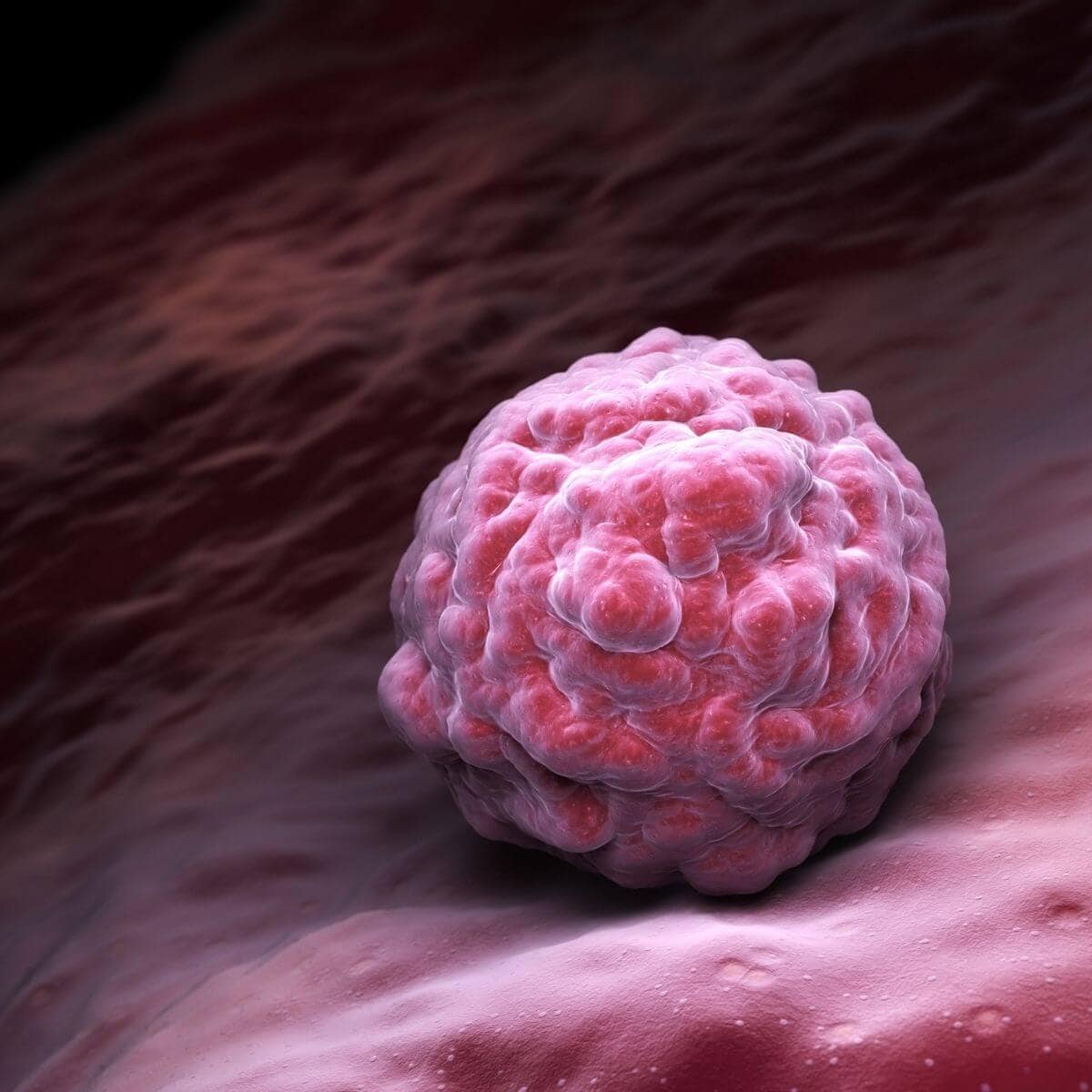When trying to conceive, we often get frustrated and wonder what we’re doing wrong when we don’t get pregnant as quickly as we’d hoped. We want to do everything right. So we read all the TTC tips and research the best ways to track ovulation. Then you pass your ovulation window, and you feel a bit out of control, like there’s nothing left to do. That’s why so many of us turn our attention to figuring out how to help implantation.
We have some good news and some bad news for you, friend. The good news is that embryos are resilient little suckers, so you don’t need to walk around worrying that your workout, a bump in a road, or an extra cup of coffee may have prevented you from getting pregnant. It didn’t.
The bad news is that, realistically, there isn’t a whole lot we can do to help with implantation.
There are lots of truths and myths out there, and it’s really hard to sort through them, especially when you’re desperate and will do anything that might potentially help. Trust us, we’ve been there.
Heck, I could probably tell people that doing the deed and then spinning around in circles while slurping down a kale and anchovy milkshake would help implantation. Someone might give it a try.
(Please don’t do this – it’s disgusting and will probably lead to a stomach ache. Also, I’m not a medical doctor).
My point is that it’s not always easy to sort through the truths and myths about how to help implantation, especially while finding all sorts of outlandish advice on Dr. Google, Instagram, and just listening to other people.
If you want tips on how to prepare your uterus for implantation, it’s important to know what’s hearsay and what could actually help you get pregnant.
That’s why we’re providing a detailed breakdown of the facts and fiction floating around the fertility universe about how to help implantation.

This site contains affiliate links, meaning that we earn a small commission for purchases made through our site. We only recommend products we personally use, love, or have thoroughly vetted.
- What Happens During Implantation?
- Understanding Why Embryos Don’t Successfully Implant
- How to Increase Chances of Implantation: Fact vs Fiction
- What Not to Do During Implantation
- How To Make Implantation Successful: Success Signs To Look For
- How to Help Implantation General FAQs
- How to Increase Chance of Implantation: Don’t Get Caught Up in The Myths
- More Trying to Conceive (TTC) Articles
- Other Fertility Articles
- More Gift Guides
- Other Favorites from Undefining Motherhood
What Happens During Implantation?
I’m not going to lie; before I started my deep dive into the world of PCOS infertility, I didn’t have a thorough understanding of exactly what happens during the conception process.
I’d seen these examples of Hollywood-imagery where the sperm and egg join together inside a woman’s uterus, and BAM, she’s pregnant.
However, I didn’t realize that just because a sperm enters an egg, it doesn’t necessarily mean a baby’s on the way.
On the contrary, once an egg has been fertilized, implantation still has to occur for the pregnancy to be viable.
After a sperm has penetrated an egg, the developing embryo will begin a series of cellular changes, known as mitosis, that can eventually turn into a fetus.
During these changes, the embryo will go through a series of different stages, including:
- Zygote
- Cleavage Divisions
- Morula
- Blastocyst
Once the embryo reaches the blastocyst stage, approximately 5-to-6 days after fertilization, it will hopefully hatch out of its exterior layer, known as the zona pellucida, and attach to the uterine wall where it will continue to develop. This is implantation.
But nearly 50% of fertilized eggs do not make it to this stage.
Understanding Why Embryos Don’t Successfully Implant
If you’re anything like me, you might feel like every aspect of trying to conceive is frustrating.
Our bodies are supposedly created to perform these biological processes, yet sometimes they just don’t work the way we want them to–but why?
Unsuccessful implantation is just one reason you might not get pregnant during what you’d hoped would be a successful cycle.
Here are the most common reasons an embryo doesn’t implant:
- Advanced maternal age
- Chromosomal abnormalities
- Genetic factors
- Poor embryo quality
- Unexplained failures
What does this mean for you? Well, if you’ve been trying unsuccessfully for a year (if you’re under 35) or 6 months (if you’re 35 or older), it means you should talk to your doctor to make sure everything looks okay.
But if that’s not you, then . . . well, it probably just means something wasn’t right this time.
We won’t tell you it’s “bad luck” because we’ve heard it a million times and we know how maddening it is. But truly, it’s just a thing that happens.
And unless you’re going through IVF, you’ll likely never know whether an embryo developed but didn’t implant, or if it didn’t develop at all.
How to Increase Chances of Implantation: Fact vs Fiction
So you want to control everything you can? We get it. And the most important thing you can do is talk to your doctor.
But if you aren’t to that point yet, or you want to probe further, we’re here to help filter through the rumors about how to help with implantation and how to prepare your uterus for implantation.
There are so many fertility myths and old wives’ tales about conception floating around–which ones are the real deal?
1. Are There Foods to Avoid During Implantation?
You might be wondering whether there’s a magical diet you can follow to increase your chances of embryo implantation. While it’s hard to say whether particular foods will make or break your likelihood of getting pregnant, there is proof that fertility and diet can correlate.
An article from Harvard Health, notes that there are certain foods to avoid during implantation.
They suggest avoiding high-glycemic foods like candy bars, soda, and those chicken nuggets from McDonald’s you’ve been stress eating.
Research also shows that women who eat vast amounts of processed foods and fast foods take longer to get pregnant.
So put aside those nuggets and start thinking about the foods to eat for fertility, such as:
- Leafy greens, like spinach & kale
- Lots of fresh fruits and veggies, including the ever-popular IVF pineapple
- Eggs
- Antioxidants, such as berries, beans, and artichokes
- Foods rich in Omega-3’s

2. Can Alcohol Affect Implantation?
After a stressful day spent worrying about all the reasons you’re not pregnant, it’s only natural to want to spend some quality time with a bottle of wine.
But realistically, knowing whether alcohol can impact implantation is tricky. According to research conducted by reproductive specialists, Dr. Kristin Van Heertum and Brooke Rossi, women who drank less than one serving of alcohol per day had a lower risk of infertility than women who drank more. This same study also found an increase in IVF failure among women who drank within a month of transfer.
That said, much older research suggests no correlation between drinking and infertility.
So, while we would never tell you that your glass of wine kept you from getting pregnant (that’s just unfair), if your goal is to control everything you can, recent evidence suggests alcohol might be something you choose to control.
3. Is it a Good Idea to Use Acupuncture for Implantation?
Here’s another tricky one, and this is the reason.
It’s hard to find peer-reviewed research about methods like acupuncture in Western medicine. That said, women in the fertility community swear by it, and we personally know lots of specialists who either recommend it, or basically tell their patients, “It can’t hurt.”
The American Pregnancy Association lists numerous ways in which acupuncture can help improve fertility,but before you go this route, talk to your own care provider first.
And please note one key element regarding acupuncture for implantation: the phrase “licensed practitioners.” If your healthcare team gives you the okay for acupuncture for implantation, do your homework and find a LICENSED practitioner!

Not just anyone can or should perform acupuncture treatments geared toward helping you achieve implantation.
You need someone who knows what they’re doing for various points in your cycle. For instance, according to the American Pregnancy Association, if there’s a possibility you could be pregnant or you’ve undergone an embryo transfer, treatment points in your abdomen are no longer recommended.
4. Can Bumpy Roads Affect Implantation?
We can’t cite any peer-reviewed sources here either because, well, we can’t find any.
That’s likely because, according to all the reproductive doctors and OBGYNs we know, running over a pothole won’t impact implantation or cause you to lose a pregnancy.
Remember, embryos are resilient. Talk to your doctor if you’re concerned. Maybe they’ve found the research that we haven’t.
5. How Does Baby Aspirin Play Into Implantation?
Studies have shown that inflammation can severely impair a woman’s ability to get pregnant. For this reason, it’s noted that a low daily dose of aspirin, or baby aspirin, can have a positive affect on the process.
When taken every day, the aspirin will reduce chronic inflammation and allow for an easier time conceiving.
In a study of more than 1200 women who received either low-dose aspirin or a placebo, the women who took the aspirin had a 39% higher chance of getting pregnant.
And just speaking from experience, baby aspirin is commonly prescribed in the infertility world. But please don’t take it without consulting your doctor, as it can have adverse effects when combined with certain pre existing conditions or other medications.
6. Should You Keep Your Uterus “Warm?”
No, we’re not talking about some sort of strange commercial product made to “warm up your uterus.”
We’re talking about Chinese medicine practices!
When I was struggling with PCOS infertility, a friend who was going to school to earn her degree in Eastern medicine gave me a piece of sage wisdom, which I thought was a little nuts at the time.
She told me if I wanted to learn how to help implantation, I needed to keep my uterus warm.
Ummm, what?
Just from a logical perspective, what embryo wouldn’t prefer a warm, hospitable environment to burrow into? While the idea seemed strange to me, I was more than willing to play along.
And here’s the deal. We have no evidence that this works. None. So we’d definitely call this one a myth. BUT, that doesn’t mean there’s any harm in it, if you want to do it.
If you’re looking for ways to warm up your uterus, here are some popular options:
- Drink warm beverages, including room temperature water
- Wear socks on your feet as much as possible (along the meridians of our bodies, our feet are said to be connected to our reproductive organs.)
- Use heat packs on your abdomen (ONLY before conception takes place!), though we strongly caution against this unless you ask your medical care provider first.
What Not to Do During Implantation
During implantation, most fertility doctors recommend avoiding anything that could potentially harm the developing embryo or disrupt the implantation process. An easy rule of thumb is to see what Reproductive Endocrinologists are suggesting to their IVF patients and taking the same precautions.
Some things that doctors often recommend avoiding during implantation include:
- Smoking
- Alcohol or drugs
- Excessive exercise: We recommend talking to your doctor in advance about your current exercise habits and making a plan of action that’s good for your body.
- Stress: Easier said than done, we know. But limiting stress as much as you reasonably can control is a good idea and can help keep your hormones regulated. (But please, friend, know this. If you experience a stressful situation and don’t conceive that month, don’t blame yourself. A lot has to go right to conceive, and your stress levels very likely are not the primary factor in whether you do or do not conceive in any given cycle.)
- Certain medications, such as nonsteroidal anti-inflammatory drugs (NSAIDs). It’s important to talk to your healthcare provider about any medications you take before trying to conceive. (Quick note on how tricky this is. Many doctors recommend avoiding NSAIDs after ovulation. Our founder, Katy, was with a fertility doctor who had her on baby aspirin–an NSAID–through her entire cycle while TTC. There are so many factors at play here. Please talk to your care provider.)
How To Make Implantation Successful: Success Signs To Look For
The time has come–how do you know if these tricks made a difference?
Well, you don’t, exactly, because even if you get pregnant, you’ll never know exactly what made the difference for you. That’s part of the reason this TTC process is so maddening.
But at this point, most of us are doing all we can to look for signs that we’re pregnant.
While the most precise way of figuring out whether you’re pregnant or not is making an appointment with your doctor, there are other weird early pregnancy signs you can be on the lookout for, including:
- Light implantation bleeding
- Cramping
- Headaches
- Fatigue
- Sore breasts
- Missed period
- Digestive troubles

How to Help Implantation General FAQs
The most important thing you can do to help implantation after IVF is to follow your healthcare provider’s instructions, as they give those instructions based on abundant experience, research, and your personal situation. It’s also a good time to focus on lifestyle habits, like getting good rest, eating a healthy diet, and managing stress as much as reasonably possible.
How to Increase Chance of Implantation: Don’t Get Caught Up in The Myths
The final takeaway is that yes, there are certain steps you can take if you want to know how to prepare your uterus for implantation.
Some of these include cutting back on alcohol, eating fertility-friendly foods, and avoiding doing donuts on a bumpy road in your pick-up truck.
All in all, it’s important not to get too wrapped up in the implantation process.
As someone who’s struggled with infertility, I know how debilitating waiting for a child can be. Don’t put extra pressure on yourself by trying to remember every single item on this list.
If you can make simple changes that don’t overwhelm you, go for it. However, all you really need to think about is staying healthy, practicing self-care, and speaking to your doctor if you feel like something’s wrong.
There are plenty of ways to become a parent if that’s your dream. Don’t waste too much time wondering whether you bought the right fuzzy socks for uterus warming.
If you’ve been wondering how to help implantation, let us know which options you try in the comments!
More Trying to Conceive (TTC) Articles
- Preparing for pregnancy
- Chances of getting pregnant on your ovulation day
- How to use ovulation test strips
- Two week wait (2ww)
- TTC tips that work
- When does implantation occur in pregnancy
- Pregnancy planner
Other Fertility Articles
- Age and fertility
- Fertility foods for women
- IVF pineapple
- Infertility testing
- Stress and infertility











